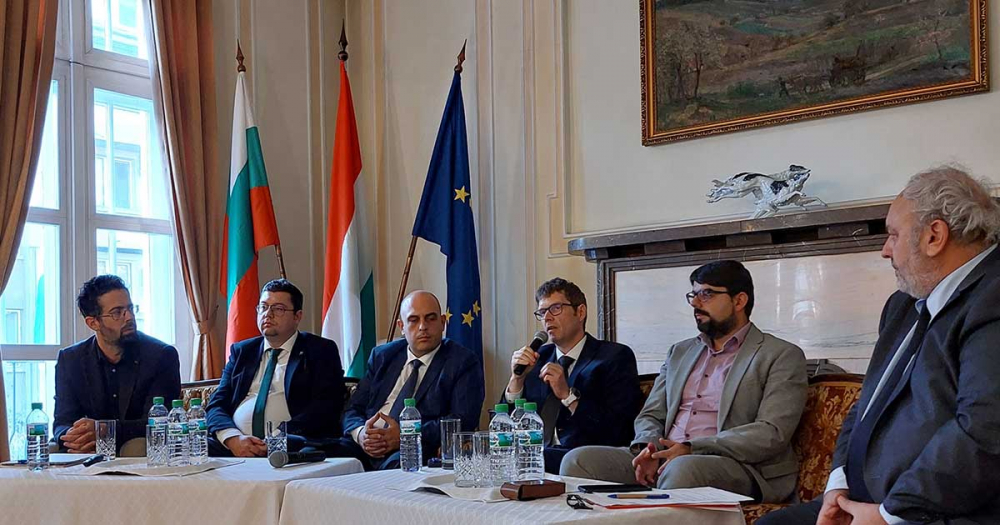Harmonising the interests of society, the economy, and the environment! None of these can be sacrificed at the altar of the other two without causing serious problems. Smart policies foster balance and partnership rather than competition and tension among these three areas. The United States and China are already on this path, and the EU should also take action.
This idea is reflected in the Budapest Declaration, and Gergely Kitta, head of strategy and communication at the Climate Policy Institute, spoke about it at the event organized by the Bulgarian Embassy of Hungary in Sofia.
The event, titled "Driving EU Competitiveness Amidst Decarbonization and Energy Price Challenges," brought together representatives from over twenty countries and the European Commission. The panel discussion was vibrant, ultimately thoughtful, constructive, and occasionally passionate or sensitive particularly regarding the role and future of natural gas and fossil fuels.

The event featured outstanding experts such as:
- Georgi Samandov, Deputy Minister of Ministry of Energy, Bulgaria
- Martin Vladimirov, Director of the Energy and Climate Programme, Center for the Study of Democracy (CSD), Bulgaria
- Ivaylo Naydenov, Director of the Bulgarian Federation of Industrial Energy Consumers (BFIEC)
- Atanas Georgiev, Dean of the Faculty of Economics and Business Administration, Sofia University
- Viktor Rácz, Senior Researcher, Regional Centre for Energy Policy Research (REKK), Hungary
- Slavtcho Neykov, Director of the Board of Managers, Energy Management Institute (EMI), Bulgaria
We thank the embassy for the honorable invitation. Bulgaria is a very important partner of Hungary in energy (also), so we hope to continue the exchange of ideas and cooperation.


